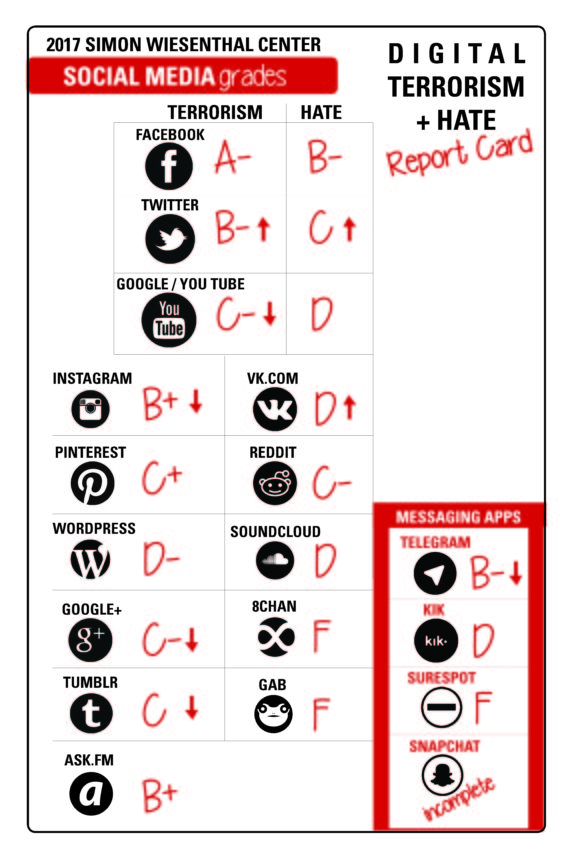 The Simon Wiesenthal Center is criticizing YouTube for allowing the proliferation of videos such as this one, posted by an account associated with the terrorist group Al-Qaeda in the Arabian Peninsula.
The Simon Wiesenthal Center is criticizing YouTube for allowing the proliferation of videos such as this one, posted by an account associated with the terrorist group Al-Qaeda in the Arabian Peninsula. The video-sharing site YouTube and its parent company, Google, fared poorly in the Simon Wiesenthal Center’s annual social media report card for their handling of hate- and terrorism-related material.
The Wiesenthal Center, a Los Angeles-based nonprofit that fights hate speech, says YouTube is being exploited by terrorists to encourage acts of violence and instruct would-be attackers in their methods. The site received a C- in the category of “terrorism” and a D for “hate.”
“Google/YouTube is rightfully under fierce criticism for placing digital ads from major international brands like AT&T and Johnson & Johnson next to extremist videos celebrating terrorist attacks that should never have been allowed on its platform in the first place,” Rabbi Abraham Cooper, the Wiesenthal Center’s associate dean, said March 28 at the media briefing where the grades were unveiled. It took place at the New York City comptroller’s office, four blocks from ground zero.

He said the Wiesenthal Center awarded YouTube its low grades for allowing terrorism “how to” videos to proliferate on its platform, and for failing to take down thousands of posts by hate groups. He pointed to a number of videos posted on the site in the wake of a recent terrorist attack outside the Houses of Parliament in London, praising the attack and encouraging others to follow suit.
YouTube did not immediately respond to a request for comment.
A more in-depth report, “Digital Terrorism + Hate,” available at digitalhate.net, details the ways in which terrorist groups use social media to recruit, network and instruct potential attackers. The report names a number of accounts, tactics and pages associated with terrorism.
“Frankly, one of the things that we need is for the companies to be more responsive to their responsibilities,” Cooper told the Journal. “Almost all the companies set rules, and some try a lot harder than others to live up to them.”
He lauded recent changes at Twitter, whose grades have improved since the Wiesenthal Center began issuing the report cards in 2015. The company’s grade for “hate” rose from a D to a C since last year. Cooper said the change was due to Twitter’s move to deactivate hundreds of thousands of accounts associated with terrorism and hate speech.
Facebook received the highest marks because of its “sophisticated in-house system of blocking” objectionable accounts and content, according to Cooper. Other platforms, such as YouTube and Twitter, are reactive rather than proactive, he said.
But in general, Cooper said Silicon Valley has demonstrated a lack of leadership when it comes to fighting hate online. He said the Wiesenthal Center hopes to convene social media companies to comprehensively address the problems of digital hate speech and web use by terrorists. Failing that, the nonprofit would look into other, more drastic measures.
“If they don’t get a handle on this, we can be looking at the horrible R-word — regulation,” he said in the interview. “I’m not particularly enamored with that solution. It’s always messy when you go to Washington.”
However, he said he will be educating public officials about the trends highlighted in the report.
At the press conference, Cooper also announced that the Wiesenthal Center will be offering tutorials for high school students “to empower young people to deal with the tsunami of hate.” The center plans to pilot the tutorials with teens in New York City.
He told the Journal, “Since they usually see [online hate speech] before the adults anyway, we’re going to do our best to try to empower them with some guidelines about how to deal with it.”























 More news and opinions than at a Shabbat dinner, right in your inbox.
More news and opinions than at a Shabbat dinner, right in your inbox.